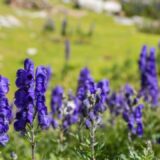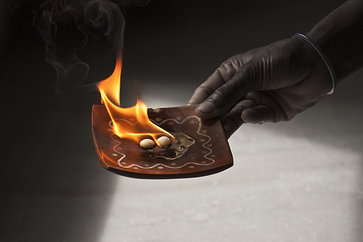12 Effective Ayurveda Home Remedies For Cough & cold
What is the Coughing? Coughing often occurs as a result of the common cold or flu and typically subsides within a few days. While it serves as a vital defense mechanism to safeguard the airways, it can also be bothersome for both the patient and the physician.
Coughing can be either voluntary or involuntary and is initiated by the activation of receptors in the laryngotracheal bronchi in response to mechanical or chemical stimuli. Interestingly, cough receptors can also be found in various other areas of the body, including the sinus, nose, external auditory ear canals, tympanic membranes, pericardium, parietal pleura, stomach, esophagus, and diaphragm.
As a critical protective mechanism, coughing helps maintain the integrity of the airways, assisting in clearing irritants, mucus, or foreign substances that might compromise respiratory function. However, in certain situations, such as during the common cold or flu, it can become more frequent and disruptive.
What is a Cough in Ayurveda?
In Ayurveda cough or coughing is a symptom classified into two main categories: Kasa (cough) or Ardra – Kasa (Coughing) Coughing is called Kasa In Ayurveda.
The second is Ardradra Swasa means (difficulty in breathing). Respiratory disease in Ayurveda is believed to be the result of the doshas flaw. Ayurvedic remedies are aimed at correcting the vitiated doshas and bringing the doshas back to normal.
The cough is also called Kala-raga and pertussis. Its noisy expulsion of air from the lungs is a highly contagious disease of the airway’s system stem. It mainly affects children and is caused by the bacterium Bordetella pertussis. Cough or coughing is merely a symptom and not a disease.
Different Types of Coughs
Coughs can manifest in various forms, each indicating different underlying causes or conditions. Here are some different types of coughs:
1. Cough of Smokers, Drug Addicts, and Drunkards: Coughs that result from the habitual consumption of tobacco, drugs, or excessive alcohol. These coughs can be chronic and particularly irritating to the respiratory system.
2. Pitta, Kapha, Vata-Induced Cough: In Ayurveda, coughs are categorized based on the dosha imbalances – Pitta, Kapha, or Vata – which can affect the respiratory system differently.
3. Pharyngeal and Laryngeal Cough: Coughs that originate from the pharynx (throat) or larynx (voice box). They may be caused by inflammation or irritation in these regions.
4. Cough Caused by Food: Certain foods or food allergies can trigger coughing in sensitive individuals.
5. Tubercular Cough: Cough associated with tuberculosis, a bacterial infection affecting the lungs.
6. Asthmatic Cough: Coughing that occurs due to asthma, characterized by inflammation and narrowing of the airways.
7. Spasmodic Cough: Sudden, intense coughing fits that can be repetitive and uncontrollable.
8. Nervous Cough: A cough that arises from psychological factors such as anxiety or stress.
9. Senile Cough: Cough that affects elderly individuals, often related to age-related changes in the respiratory system.
10. Allergic Cough: Cough triggered by allergies to substances like pollen, dust, pet dander, or certain foods.
11. Dry Cough: A non-productive cough that does not produce mucus, commonly associated with throat irritation or allergies.
Identifying the specific type of cough is essential for determining the appropriate treatment and managing the underlying condition effectively.
If you experience a persistent or concerning cough, it is crucial to consult a healthcare professional for proper evaluation and personalized care.
Signs and Symptoms of the Cough-Coughing
Coughing is a common symptom that can be associated with various conditions, ranging from mild respiratory infections to more severe illnesses. Here are some common signs and symptoms of a cough:
1. Coughing: The most apparent and primary symptom of a cough is the repetitive expulsion of air from the lungs to clear the respiratory passages.
2. Flu-like symptoms: In some cases, a cough may be accompanied by flu-like symptoms such as fever, headache, fatigue, sore throat, and body aches.
3. Mucus Production: Coughing can lead to the production of mucus, which may vary in color. It can be clear, yellow, brown, or green, depending on the underlying condition.
4. Swollen Lymph Nodes: Infections or inflammation in the respiratory system can cause the lymph nodes in the neck to become swollen and tender.
5. Runny Nose (Nasal Congestion): Nasal congestion and a runny nose may occur along with a cough, especially in cases of respiratory infections.
6. Hoarse Voice: A persistent cough can cause strain on the vocal cords, resulting in a hoarse or raspy voice.
7. Sore Throat: Frequent coughing can irritate the throat, leading to a sore and uncomfortable sensation.
8. Vomiting: Intense coughing spells may trigger a reflex that can lead to vomiting, especially in children or individuals with sensitive stomachs.
9. Wheezing: Some coughs may be accompanied by a high-pitched whistling sound (wheezing) during breathing, which indicates narrowing of the airways.
10. Nausea: Coughing can sometimes induce a feeling of nausea, especially when the cough is persistent and severe.
Note: It is important to note that the signs and symptoms of a cough can vary depending on the underlying cause, such as respiratory infections (common cold, flu, bronchitis), allergies, asthma, or more serious conditions like pneumonia or chronic obstructive pulmonary disease (COPD).
Cough In Ayurveda (Kasa Raga)
In Ayurveda, cough (Kasa Raga) is classified based on its underlying causes and dosha imbalances. There are five types of cough identified:
1. Vata Disorders: Coughs are caused by imbalances in the Vata dosha, which is associated with air and ether elements. Vata-related coughs are relatively manageable.
2. Injury or Infection: Coughs that arise due to injuries or infections in the respiratory system. These coughs are usually transient and can be treated effectively.
3. Illness-Induced: Coughs that accompany various illnesses and medical conditions. Proper management of the underlying illness can alleviate this type of cough.
4. Pitta: Coughs associated with an aggravation of the Pitta dosha, linked to fire and water elements. Pitta-related coughs require specific attention and care.
5. Kapha: Coughs caused by an imbalance in the Kapha dosha, which is associated with water and earth elements. Kapha-related coughs can be challenging to address.
Addressing the latter two categories of coughs (Pitta and Kapha related) may require a more targeted and individualized approach, considering the specific dosha imbalances and underlying factors.
Ayurvedic treatments, lifestyle adjustments, and dietary modifications can play a significant role in managing these types of coughs effectively.
Seeking guidance from an experienced Ayurvedic practitioner can help in tailoring an appropriate treatment plan based on one’s unique constitution and health condition.
Two Common Types of Coughing
1. A dry cough: The cough is usually in the throat as a tickle, which sets up the coughing. It may be due to the throat and upper respiratory tract becoming inflamed, it is not productive. After about 1 to 2 weeks, the dry, irritating cough becomes coughing.
2. A chest cough: chest cough can either be due to mucus production occurring in response to infection or non-productive due to the infection causing the lung passages to swell.
What Are the Causes of a Cough?
Coughs can arise due to various underlying factors and medical conditions. Here are some common causes of a cough:
1. Childhood Asthma: Asthma in children can trigger coughing as one of its symptoms, often associated with airway inflammation and constriction.
2. Disorders of the Upper Airways: Conditions affecting the upper respiratory tract, such as sinusitis or postnasal drip, can lead to persistent coughing.
3. Disorders of the Pericardium: Inflammation or irritation of the pericardium, the membrane surrounding the heart, can cause coughing.
4. Chronic Pulmonary Infection: Prolonged infections in the lungs, like chronic bronchitis or tuberculosis, can result in persistent coughing.
5. Interstitial Lung Disease: Lung conditions that cause scarring and inflammation in the interstitial tissue can lead to chronic cough.
6. Congestive Heart Failure: In some cases of heart failure, fluid may accumulate in the lungs, leading to a cough.
7. Bronchogenic Carcinoma: Lung cancer, specifically bronchogenic carcinoma, can be associated with a chronic cough, particularly in smokers or those with a history of smoking.
8. Psychogenic Disorders: Emotional or psychological factors can sometimes lead to a chronic cough that doesn’t have a physical cause.
9. Bird Flu in Humans: Avian influenza (bird flu) infection in humans can cause respiratory symptoms, including cough.
10. Cystic Fibrosis: This genetic disorder affects the lungs and digestive system, causing thick mucus production and chronic cough.
11. Headache: Coughing can sometimes occur as a response to headaches, especially in individuals prone to migraines or sinus headaches.
It is essential to identify the specific cause of the cough to determine the appropriate treatment and address any underlying medical conditions.
Six Different Types of Cough
- Subacute cough: this type of cough remains for about three to eight weeks.
- Acute cough: this is a cough that can last up to three weeks.
- Productive cough: a cough that brings stuff up, such as sputum.
- Chronic cough: this type can last for over eight weeks.
- Dry cough: a cough that brings nothing up.
- Nocturnal cough: only occurs at night.
What is the Best Ayurvedic Medicine for Colds?
Ayurveda, the ancient Indian system of medicine, offers a wealth of natural remedies to alleviate colds and coughs. These time-tested Ayurvedic medicines are derived from various herbs, spices, and natural ingredients that help in treating and relieving the symptoms of colds. Below are some of the best Ayurvedic medicines for colds:
1. Tulsi, Garlic, and Honey Mixture: For severe cough, a potent mixture of tulsi (holy basil) juice, garlic juice, and honey can be prepared. Consuming one teaspoon of this mixture once every three hours can effectively treat excessive coughing.
2. Oregano Infusion: To reduce coughing, boil oregano in water, strain it, and drink the infused water. Oregano’s properties help soothe the respiratory system and alleviate cough symptoms.
3. Aniseed Tea: Aniseed is useful for dry coughs with difficult expectoration. Prepare a tea using aniseed, and regular consumption may aid in breaking up mucus and treating the condition.
4. Honey and Grape Juice: A simple mixture of one teaspoon of honey with a cup of grape juice is recommended for cough relief. This soothing combination can provide comfort during bouts of coughing.
5. Cherry and Honey Cough Syrup: Create a beneficial cough syrup by boiling 2 cups of cherries with water, honey, and lemon slices. After boiling until the cherries are tender, remove the lemon slices and cherry pits. Store the syrup and consume as needed to alleviate cough.
6. Herbal Paste with Honey: A paste made from dates, black pepper, raisins, long pepper, and Vidangos mixed with an equal amount of honey can be taken three to four times a day for cough relief.
7. Raisin Sauce Remedy: Prepare a raisin sauce by grinding 100 grams of raisins with water and mixing it with 100 grams of sugar. Heat the mixture until it reaches a sauce-like consistency. Take twenty grams of this sauce every night before bedtime for effective results.
8. Ginger and Honey Mixture: Mix equal parts of ginger juice and honey and consume it 2-3 times a day to alleviate cough symptoms.
9. Raw Onion and Honey Syrup: A syrup made from one teaspoon of raw onion juice and one teaspoon of honey, consumed every 3 to 4 hours, acts as an excellent cough remedy.
10. Turmeric and Cardamom Blend: A blend of a teaspoon of honey, a pinch of turmeric powder, and cardamom, chewed for a while, can be very beneficial in treating dry cough.
11. Betel Leaf and Tulsi Chew: Chewing betel leaf with 3-4 black Tulsi (Krishna Tulsi) leaves, a nail, and a small amount of menthol three times a day provides relief from severe cough.
12. Cinnamon Tea: Cinnamon, a well-known herb used in cooking, can be used to make a cup of tea. Consuming this cinnamon-infused tea can provide relief from cough symptoms.
Remember, while Ayurvedic remedies can be effective in providing relief from coughs and colds, it’s essential to consult with a qualified Ayurvedic practitioner or healthcare professional, especially if you have any underlying health conditions or if symptoms persist.


























